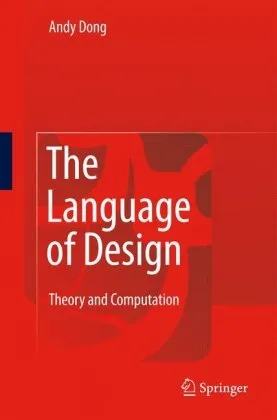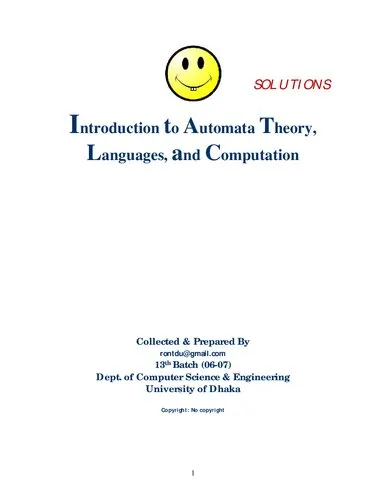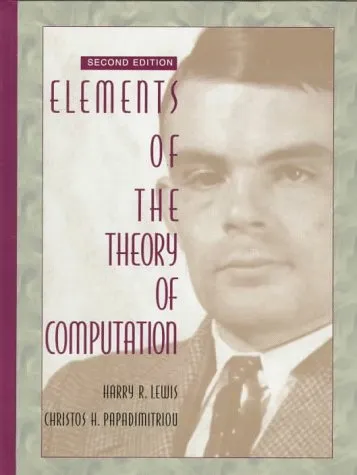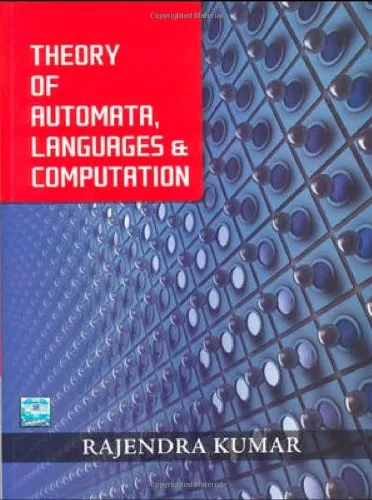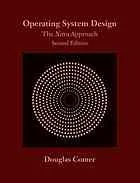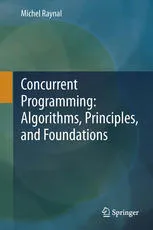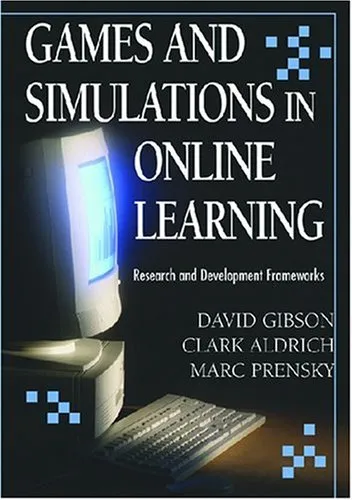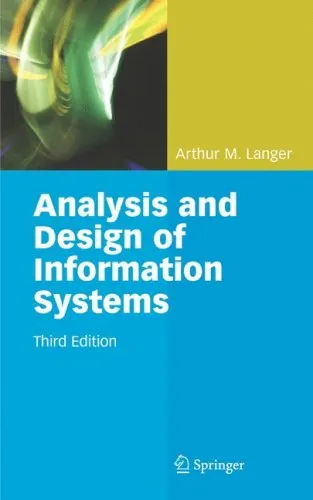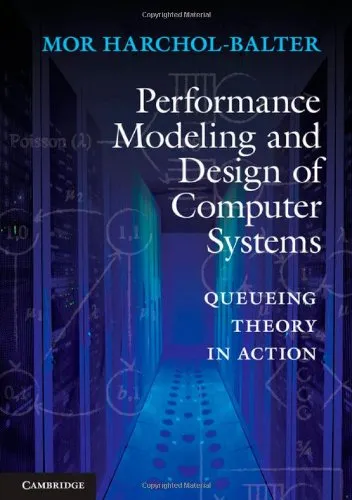INSTRUCTIONAL-DESIGN THEORIES AND MODELS Volume II A New Paradigm of Instructional Theory
4.5
بر اساس نظر کاربران

شما میتونید سوالاتتون در باره کتاب رو از هوش مصنوعیش بعد از ورود بپرسید
هر دانلود یا پرسش از هوش مصنوعی 2 امتیاز لازم دارد، برای بدست آوردن امتیاز رایگان، به صفحه ی راهنمای امتیازات سر بزنید و یک سری کار ارزشمند انجام بدینکتاب های مرتبط:
معرفی کتاب "INSTRUCTIONAL-DESIGN THEORIES AND MODELS Volume II"
کتاب "INSTRUCTIONAL-DESIGN THEORIES AND MODELS Volume II: A New Paradigm of Instructional Theory" اثری برجسته و جامع در زمینه طراحی آمورشی است که نقش بسزایی در تحول نظریههای آموزشی ایفا کرده است. این کتاب تحت ویراستاری چارلز ام. ریگلوث تدوین شده و به بررسی عمیق پارادایمهای جدید در طراحی آموزشی میپردازد. با تمرکز بر نیازهای یادگیری دانشآموزان و یادگیرندگان عصر حاضر، این اثر راهبردها و مدلهایی نوین برای آموزش اثربخش ارائه میدهد.
خلاصهای از کتاب
جلد دوم این مجموعه، مفاهیم اساسی و جدیدی را در طراحی آموزشی ارائه میکند. این کتاب از چندین بخش و مقالات تأثیرگذار تشکیل شده که هر یک توسط افراد برجسته در حوزه طراحی آموزشی نوشته شدهاند. نویسندگان کتاب تلاش کردهاند تا با ارائه مدلهای انعطافپذیر، به متخصصین آموزشی کمک کنند تا برای محیطهای پویا و متغیر امروز آموزش مؤثرتری ایجاد کنند. تاکید اصلی این کتاب بر این است که یک مدل واحد طراحی آموزشی برای تمامی موقعیتها و دانشآموزان مناسب نیست، بلکه باید بر اساس نیازها و شرایط خاص، راهحلهای سفارشی ایجاد شود. همچنین، این کتاب توجه ویژهای به آموزش مبتنی بر یادگیری تجربهگرا و طراحی آموزشی سازگار دارد.
نکات کلیدی کتاب
- تمرکز بر "Customization" برای بهینهسازی فرآیندهای یادگیری
- استفاده از اصول "Learner-Centered Design" به جای روشهای سنتی
- لزوم آموزش مبتنی بر مهارتهای واقعی (Real-World Skills)
- اهمیت طراحی محیطهای مشارکتی و تعاملی برای یادگیری فعال
- استفاده از فناوری برای پشتیبانی از تجربههای یادگیری فردی و گروهی
نقلقولهای معروف از کتاب
"Instructional theory must serve the mission of enabling the highest levels of learning for every individual."
"Customization is not optional; it is critical if we are to help every learner succeed."
چرا این کتاب اهمیت دارد؟
کتاب "INSTRUCTIONAL-DESIGN THEORIES AND MODELS Volume II" یکی از منابع پیشرو در حوزه طراحی آموزشی است که فراتر از راهکارهای سنتی قدم برمیدارد. این کتاب به متخصصان این حوزه کمک میکند تا رویکردهای آموزشی جدید و اثربخشتری را در دنیای یادگیری مدرن ایجاد کنند. تاکید کتاب بر یادگیری شخصیسازی شده و تجربههای یادگیری تعاملی، آن را به منبعی ضروری برای اساتید دانشگاه، طراحان آموزشی و محققان تبدیل کرده است. از سوی دیگر، اثربخشی نظریهها و مدلهای معرفی شده در این کتاب، راهنمایی عملی برای مواجه با چالشهای آموزش در قرن بیست و یکم ارائه میدهد. از اینرو مطالعه این اثر، ضرورتی برای هر کسی است که به آیندهی یادگیری و آموزش علاقهمند است.
Introduction to "Instructional-Design Theories and Models: Volume II – A New Paradigm of Instructional Theory"
The field of education and instructional design has witnessed profound transformations over the years, and with these changes comes the need for innovative theoretical frameworks. Charles M. Reigeluth, in the second volume of his highly influential series "Instructional-Design Theories and Models," presents a comprehensive exploration of a new paradigm in instructional theory. This volume serves as a cornerstone for educators, instructional designers, and researchers, offering insights into emerging trends and alternative frameworks aimed at modernizing the process of teaching and learning in dynamic and effective ways.
Unlike traditional instructional theories that often adhered to a "one-size-fits-all" framework, this book embraces a tailored, flexible, and learner-centered approach. With contributions from leading scholars in the field, "Instructional-Design Theories and Models: Volume II" emphasizes the evolution of instructional theory to meet the demands of a rapidly changing world. It prioritizes meaning-making, learner engagement, and adaptability, addressing the complexities of 21st-century education and technology. This introduction offers an overview of the book's purpose and content, emphasizing its importance in reshaping the theoretical foundations of instructional design.
Summary of the Book
This book digs deep into the premise that traditional paradigms of instructional design no longer suffice in our fast-paced, technologically interconnected world. It adopts a "paradigm shift" perspective that transitions away from purely behaviorist and linear models towards a learner-driven and constructive approach. Volume II of this series integrates diverse theoretical perspectives that aim to address the underlying need for individualized, adaptive, and collaborative learning systems.
Structured around multiple contributions by world-renowned scholars, the volume offers a wide-ranging discussion centered around three key themes:
- Learner-Centered Approaches: Emphasizing the customization of instruction based on individual learners’ needs, interests, and goals.
- Contextual and Situational Learning: Highlighting the importance of situational factors in shaping instructional strategies and outcomes.
- Collaboration and Interaction: Encouraging dynamic exchanges between learners, instructors, and technology to enhance meaning and engagement.
Each chapter is dedicated to exploring a specific instructional design theory or innovative approach, supported by evidence-based practices and case examples. Readers will find frameworks designed to enhance higher-order thinking, adapt instruction to learners’ developmental stages, and leverage technology for highly interactive learning environments. This diversity makes it an invaluable resource for theorists and practitioners alike.
Key Takeaways
- Instructional design must evolve to accommodate the changing demands of education in the 21st century.
- Learner-centered approaches are key to fostering motivation, deeper learning, and long-term retention.
- Contextual knowledge and situational understanding play significant roles in effective instruction.
- Collaboration—both peer-to-peer and between learners and educators—enhances the learning experience.
- New instructional theories prioritize adaptability, flexibility, and meaningful engagement over standardized methods.
Famous Quotes from the Book
"The future of instructional design lies not in standardization, but in meaningful customization that aligns with both learner needs and societal changes."
"Education is not just about imparting knowledge but about fostering the ability to think, reflect, and apply understanding to real-world problems."
"In a knowledge-driven society, instructional theories must prioritize learners’ development as adaptive thinkers and creative problem-solvers."
Why This Book Matters
In an era of constant change, where education systems face unprecedented challenges, this book serves as a beacon for those who seek to innovate and improve instructional practices. It matters because it aligns educational theories with the needs of a knowledge-centric world while challenging outdated, traditional models. Its focus on learner-centered education ensures that the material remains relevant in the decades to come, addressing personalization, collaboration, and integration of technology in the learning process.
Moreover, the book’s comprehensive nature and multidisciplinary perspective make it a crucial resource for anyone invested in reshaping educational experiences. From school teachers to corporate trainers, to instructional designers, this book provides accessible theories and concepts that have practical implications for their work. By addressing the urgent need for new paradigms, it paves the way for educators to embrace innovative, impactful, and forward-thinking strategies in instructional design.
Ultimately, "Instructional-Design Theories and Models: Volume II" is more than just a book—it is a scholarly call to action. In its pages, readers will find a roadmap for the educational transformation required to meet the needs of both learners and society at large.
دانلود رایگان مستقیم
شما میتونید سوالاتتون در باره کتاب رو از هوش مصنوعیش بعد از ورود بپرسید
دسترسی به کتابها از طریق پلتفرمهای قانونی و کتابخانههای عمومی نه تنها از حقوق نویسندگان و ناشران حمایت میکند، بلکه به پایداری فرهنگ کتابخوانی نیز کمک میرساند. پیش از دانلود، لحظهای به بررسی این گزینهها فکر کنید.
این کتاب رو در پلتفرم های دیگه ببینید
WorldCat به شما کمک میکنه تا کتاب ها رو در کتابخانه های سراسر دنیا پیدا کنید
امتیازها، نظرات تخصصی و صحبت ها درباره کتاب را در Goodreads ببینید
کتابهای کمیاب یا دست دوم را در AbeBooks پیدا کنید و بخرید
1476
بازدید4.5
امتیاز0
نظر98%
رضایتنظرات:
4.5
بر اساس 0 نظر کاربران
Questions & Answers
Ask questions about this book or help others by answering
No questions yet. Be the first to ask!
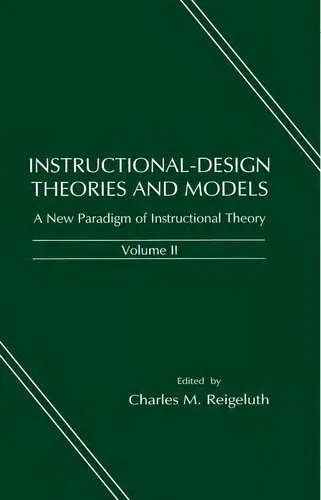

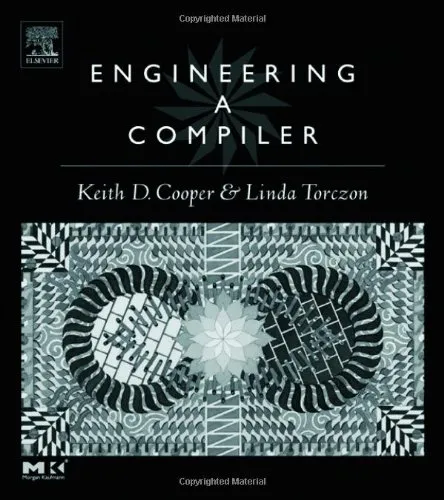
![Engineering a Compiler, Second Edition [2nd Ed] (Instructor's Edu Resource 1 of 2, Solution Manual) (Solutions)](https://s3.refhub.ir/images/thumb/Engineering_a_Compiler__Second_Edition__2nd_E_2258.webp)
